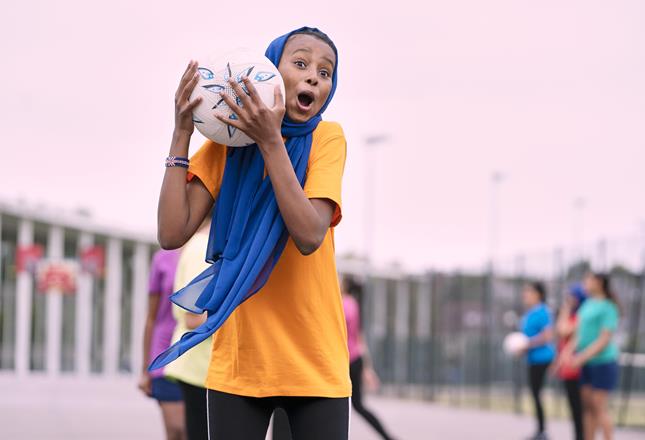
The Active Lives Adults Survey reports that between November 2020 and November 2021, 61.4% of the population were active, and 27.2% were inactive. The recovery really started from mid-March 2021, with a rise of 3% of the population getting active compared to the previous year.
The number of people participating in team sports also sprung back after restrictions began to ease, with a 2% increase in football participation from mid-July to mid-September 2021, and 0.3% increases in cricket and basketball across the same period.
However, the report reaffirms that physical activity levels are still well below pre-pandemic levels and also makes clear that the pandemic has widened existing inequalities – particularly for the least affluent, Asian people, disabled people and people with long-term health conditions. For example, activity fell 4.4% in the most deprived areas, compared to 1.2% in the least deprived areas.
The data also shows a concerning decline in the number of people volunteering in sport and physical activity, with 3.1 million fewer adults giving up their time to support the sector compared to 12 months ago.
Responding to the report, Sport and Recreation Alliance CEO, Lisa Wainwright MBE said: “Despite activity levels starting to increase towards pre-pandemic levels, inequality remains a substantial barrier to allowing everyone across the nation to benefit from being active.
“The sector itself responded admirably to lockdowns and restrictions and when these were lifted, it was encouraging to see an increase in the number of people who felt they had the opportunity to be active. This is testament to the incredible work of our sport and recreation organisations and their ability to deliver sessions and programmes as soon as they were safely able to do so.
“The focus must continue to be on increasing accessibility and opportunities for those groups where inequality remains. Women, disabled people, those from ethnically diverse communities and people living in more deprived areas are still being disproportionately impacted.
“With the current cost of living crisis being felt across society, the potential of this inequality to grow further is deeply concerning. We’ve heard this week of the difficulties UK swimming pools are facing as they come to terms with increased energy costs of up to 150% and we know that many other sports and activities are navigating similar challenges.
“Further action must be taken to provide support for our community facilities across the country who are often the heartbeat of local towns and villages and provide accessible opportunities for everyone to be active.
“We hope that through the Office for Health Improvement and Disparities and the Health Promotion Taskforce that progress towards tackling these inequalities will be accelerated. It is this kind of cross-departmental approach and collaboration that will really help us drive positive change.
“As we have already called for as part of the Sport Environment and Climate Coalition, there is also the need to identify a longer-term strategy which ensures local facilities meet local needs in a sustainable way. Protecting the long-term future of our community sport and recreation facilities will set the platform for inequalities to be tackled and for activity levels to rise.
“The notable drop in activity levels for the 16-34 age group has continued a worrying trend that was present before the pandemic. This demonstrates the importance of engaging our young people in sport at the earliest possible opportunity in order to create a meaningful, lasting relationship with physical activity.
“This is why it is so important that funding for PE and school sport is protected and why we continue to stress the urgency and importance of greater long-term certainty for schools in relation to the PE and Sport Premium. With the government’s Sporting Future strategy also under review, we hope to see a bold and united approach to ensure future generations of children can lead much healthier and more active lives.
“Through our parliamentary work and our conversations with Sport England, government, and National Sector Partner Group members, we will continue to work to reflect the needs of our members and to overcome the persisting inequalities that are limiting the opportunity for sport and recreation to be at the heart of the nation’s recovery.”
It is with immense sadness that the Sport and Recreation Alliance learned of Andy Sutch’s passing last week, and we send our deepest condolences to Andy’s family and friends.
Read moreThis afternoon, the Chancellor delivered her Budget speech to Parliament, outlining decisions on tax and spending.
Read moreAhead of the Chancellor’s Budget statement on 26 November, we take a look a look at the key areas to be aware of and the work the Alliance has been doing lobbying on behalf of members.
Read moreJoining the Sport and Recreation Alliance is pretty simple, but worthwhile!
Register now